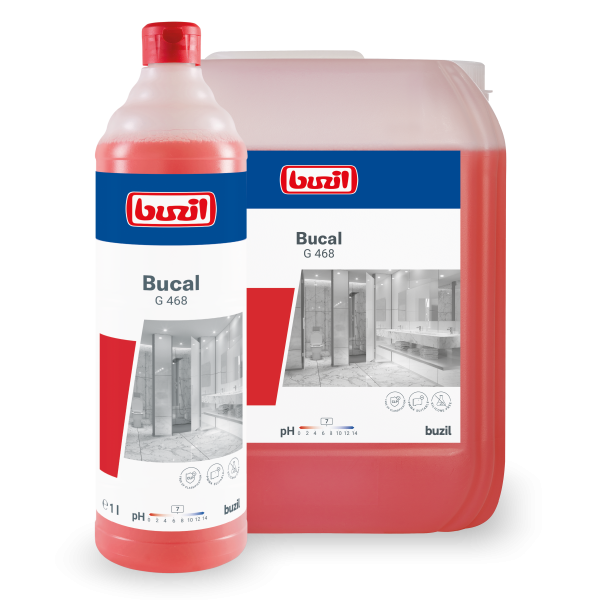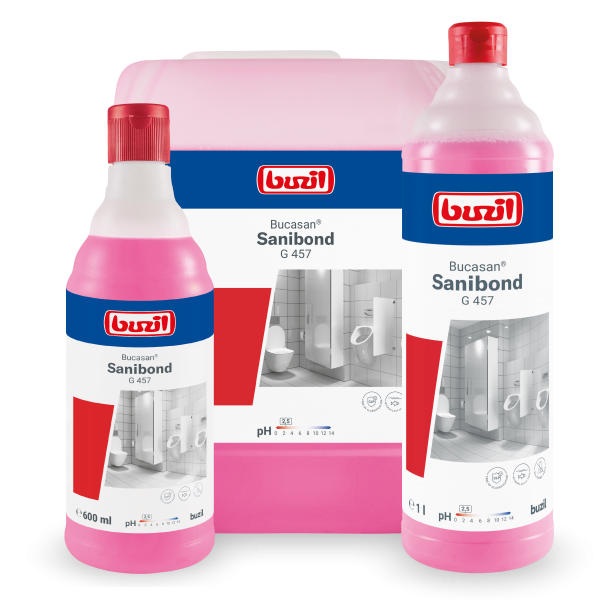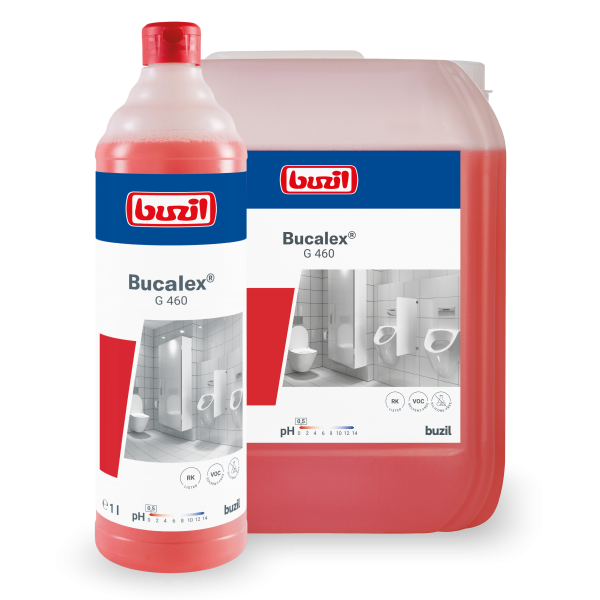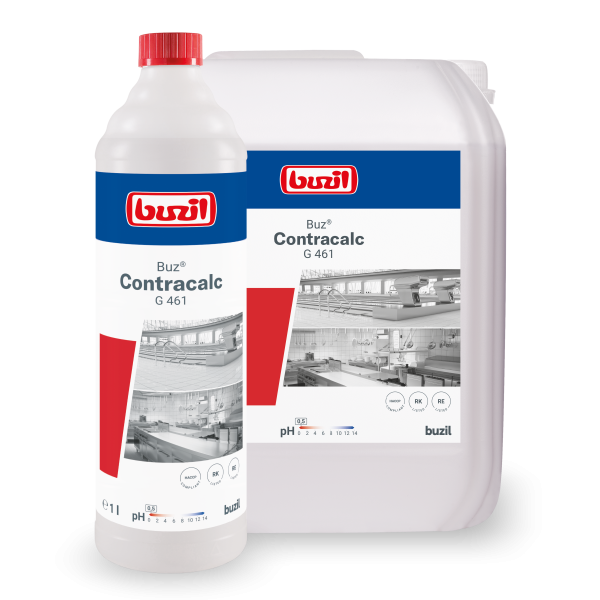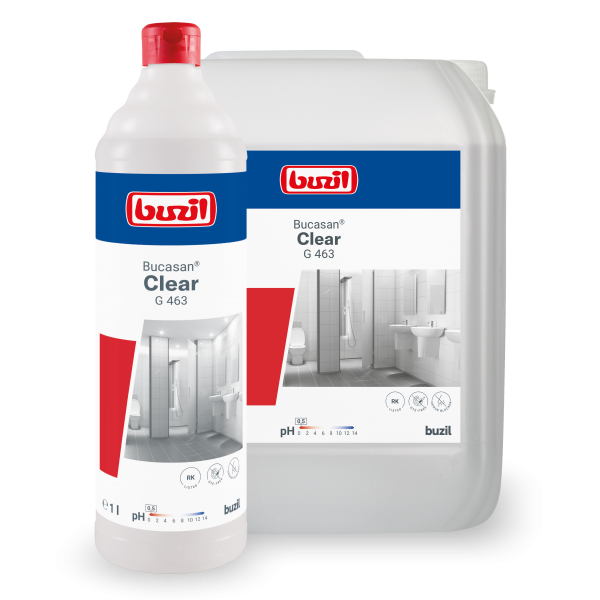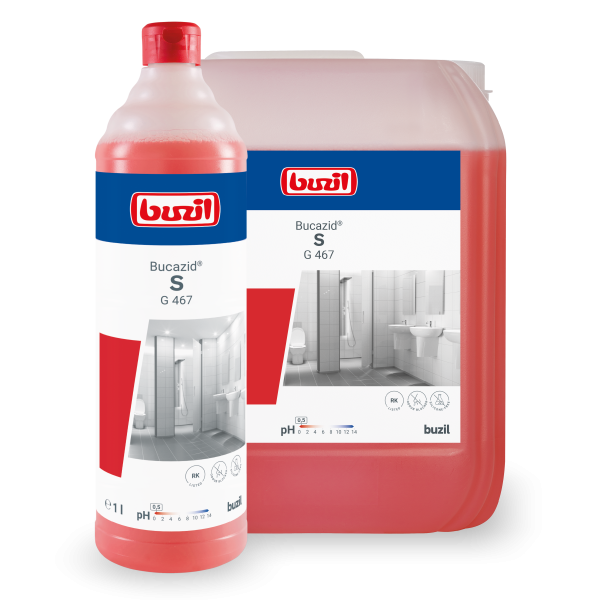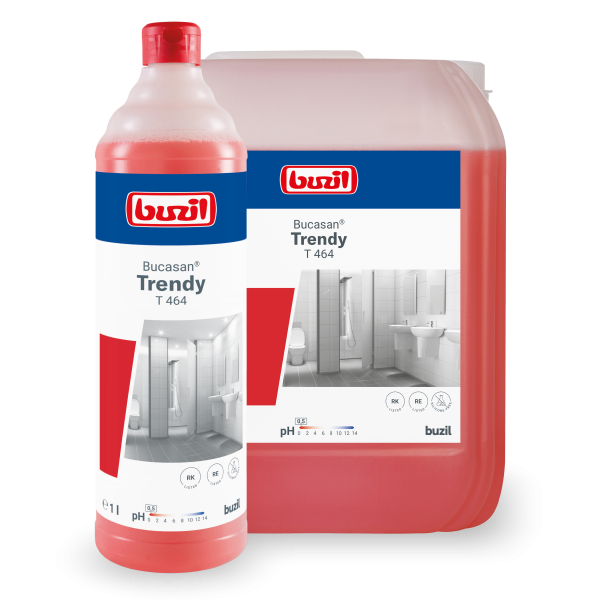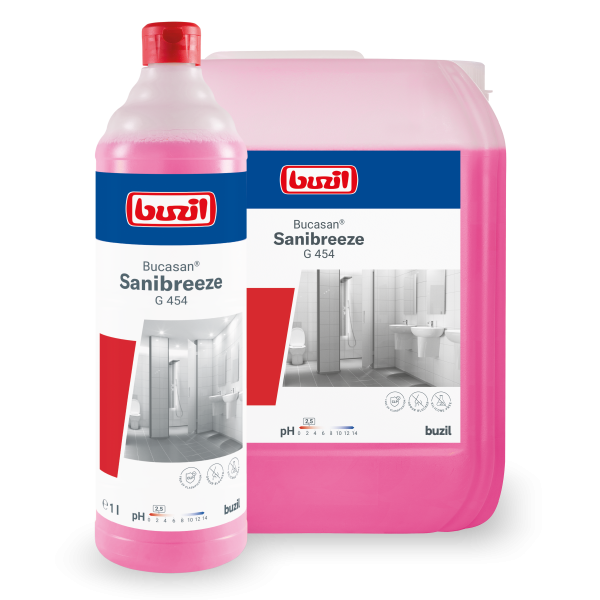Utilization
Soiling
-
Normal soiling (dust, beverage stains, insect stains, etc.)
-
Mineral soiling (lime, cement residue, urine scale, etc.)
-
Bad odours
Material compatibility
-
Chrome
-
Sanitary porcelain
-
Aluminium | indoor
-
Marble and Jurassic
-
Resopal
-
Gabbro | Nero Assoluto
-
Shell limestone
-
Ceramic tiles
-
Enamel
-
Stainless steel
-
Acrylic and plexiglass
Product Information
- All purpose sanitary cleaner with long-lasting fresh fragrance
- Material-compatible with good cleaning performance
- Dries streak-free without subsequent drying due to beading effect
- Regular application prevents lime build-up
- Quickly and effectively removes skin grease, soap residues and lime-soap
Area of application
- for the entire wet room and sanitary area
- for use in soft water
- acid-sensitive materials such as enamel, aluminium, brass, marble, shell limestone, etc.
- waterproof surfaces and floors
- Waterless toilets
- suitable for acrylic glass (PMMA)
Application and dosage
- Always use cold water.
-
undiluted
-
20 - 100 Millilitre / 10 liter Water
-
20 - 100 Millilitre / 10 liter Water
-
50 Millilitre / 600 Millilitre Water
-
1:5 - 1:10 with water
- Apply fresh application solutions and consume them within 24 hours at the latest.
Tips and tricks
Stripes and/or film on the surface
Rinse thoroughly with clean water
no cleaning performance
Surface damage (discoloration, swelling of material, etc.)
check chemical and water compatibility
Environmental Information
Proportion of easily degradable ingredients
76.8 %
Phosphorus content
1.8 mg/g
Palm oil-based raw materials - RSPO-certified share
100 %
The proportion of easily degradable ingredients refers to the proportion of organic ingredients that are defined as “easily biodegradable” according to OECD 301 or Detergent Regulation (EC) No. 648/2004. The value of the phosphorus content refers to elemental phosphorus. Palm oil is an important renewable source for the production of raw materials. The Roundtable on Sustainable Palm Oil (RSPO), founded in 2004, promotes sustainable cultivation methods for palm oil. This results in a certification system and the possibility of declaring raw materials as “RSPO-certified”.
Sales units
- G468-0010RA: 1 x 10 l canister
- G468-0001RA: 12 x 1 l bottle
Download area
- Operating instructions
- Safety Data Sheets
- Technical Data Sheets
- Environmental Information

